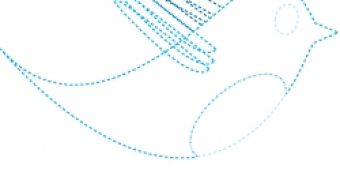The Internet is making it harder for dictators around the world to go about their daily business. Mass deception, control of the media, absolute power, that sort of thing. From Italy to China and, indeed, Australia, the people in power are finding it increasingly harder to control the flow of information. The poster child for the social web revolution is none other than Twitter and, while its actual impact on the life of those oppressed may be exaggerated, it at least focuses the world's attention to the places that need it the most. This week's fashionable country in need was Venezuela and the #freevenezuela hashtag was a trending topic for much of the week. President Hugo Chávez, as you can imagine, wasn't thrilled.
Actually, he's downright furious that the terrorists threatening the country's stability and economic growth would turn to such capitalist tools as Twitter. He became increasingly disgruntled with anything having to do with social networks and the Internet as a whole and says that using any online medium to criticize his, elected, rule over Venezuela is nothing short of terrorism.
It looks like Chávez is taking at least one lesson from the US government, for which he doesn't have the kindest words on most occasions, 'when in doubt, blame terrorism'. The speech comes after increasing tensions in Venezuela have resulted in street violence. A couple of weeks ago the president ordered the shut down of five cable TV stations which refused to air his speeches. This set off a wave of protests in the country which have been met with violence from the police.
Students protesters are increasingly turning to Twitter to organize and spread news and Chávez is fearing this may turn into another Iran situation. His plan is now to regulate the Internet in the same way he does the local media, attempting to stop any sort of negative commentary about his rule. Whether or not he succeeds remains to be seen, but as Internet censorship is becoming increasingly popular in, seemingly, democratic countries it's not too hard to imagine him pulling it off.

 14 DAY TRIAL //
14 DAY TRIAL //